Compared to mechanical-physical production methods of nanomaterials based on a pure crushing (breaking down) of the starting material ('Top Down'), chemical synthesis routes in which the desired material is constructed from chemical precursors ('bottom up') provide better control of purity, composition, homogeneity, and microstructure. Here, the composition of the material can already be defined at the molecular level. Metal alkoxides in general play an important role as chemical precursors for the production of metal oxide materials and have become enormously important due to their accessibility, and generally non-toxic nature of the degradation products that arise during thermolytic and hydrolytic decomposition. In this context, various alkoxides as precursors for MOCVD (metal-organic chemical vapor deposition) and sol-gel synthesis of high-purity oxides were examined in more detail. Metal alkoxides ([M(OR)x]) already possess as so-called single-source precursors the M-O-units necessary for the formation of the metal oxide, which can be maintained by the predetermined binding energies (M-O, O-C, and C-H) during the material preparation. This fact allows their controlled decomposition at relatively low temperatures, which is an advantage over conventional methods using inorganic salts. By chemical and structural modification of the precursor molecules, the physicochemical properties, in particular volatility and solubility of the compounds, as well as the thermal stability can be adjusted, which opens up the possibility to specify the desired solid-phase already at the molecular level.
Special synthesized (transition-)metal chalcogenide complexes – containing the havier chalcogenides S, Se, Te – enjoy increasing interest because of their application as molecular precursors for (transition-)metal chalcogenide materials with unique properties. Specific designed chalcogenide-based ligand systems were used to form sufficient reactive and stable complexes, suitable as single-source precursors. The preformed M-S/Se/Te bonds enable a more controlled and defined material formation, resulting in phase pure MS/Se/Tex materials.
The Physico-chemical properties of the molecular complex are essentially determined by the electronic and geometric (steric) influence of the ligands used. As a result, "ligand design" plays a key role in the molecular-based synthesis of nanostructured materials.
The synthesis of designed complexes is one of the central themes in the working group of Prof. Sanjay Mathur. Divers ligand systems enable the provision of desired alkoxides, heteroarylalkenolates, and chalcogenide complexes by different synthetic approaches. These synthesized complexes deliver reliable the targeted metal, oxide, or chalcogenide-based materials.
Contact Person
-

Prof. Dr. Sanjay Mathur 430 322b
- Phone
- +49 221 470-4107
-
sanjay.mathur
uni-koeln.de
